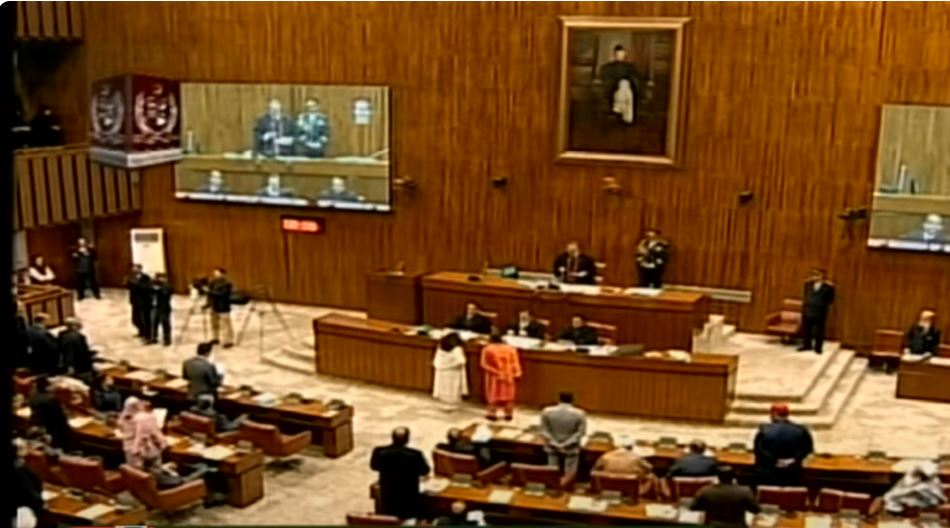The government is set to push through critical legislation today as both the National Assembly and Senate convene for high-stakes sessions.
The National Assembly is scheduled to meet at 4pm, followed by the Senate at 6pm, with agendas packed to address vital amendments and bills, including important legislation related to the Supreme Court.
In the National Assembly, a seven-point agenda includes the presentation of the Supreme Court Practice and Procedure Amendment Ordinance.
Additionally, a call-attention notice will be introduced regarding Pakistan’s judiciary ranking of 129th globally in the Rule of Law Index, underscoring calls for judicial reform.
Also on the assembly's agenda is the potential passage of the Anti-Terrorism Amendment Bill, as part of the government’s ongoing efforts to strengthen national security frameworks.
Members will also consider moving a resolution to express gratitude for the presidential address delivered during the joint parliamentary session. MNA Aliya Kamran will also move a call-attention notice highlight the grounding of Pakistan International Airlines (PIA) aircraft.
The Senate’s 39-point agenda on the Private Member’s Day includes the introduction of various bills by senators Anusha Rehman and Saleem Mandviwala. Senator Shahadat Awan will present two bills approved by the National Assembly.
Also Read: Senate committee okays increase in SC judges to 25 amidst debate
A report of the Standing Committee on Law on the Under-Custodial Investigation Bill 2020 and a report from the Human Rights Committee on the Factories Amendment Bill 2023 will also be presented in the session. The session will also see a bill presented for the establishment of a Pakistan Animal Science Council and review reports related to the Criminal Law Amendment Bill 2023 among others.
Parliament is also expected to consider a bill increasing the number of Supreme Court judges to 25, following the Senate Standing Committee on Law and Justice’s recent approval.
On Nov 1, Senate Standing Committee on Law and Justice approved a proposal to increase the number of Supreme Court judges from the current count to 25, including the chief justice.
The committee members debated on the rational to increase judges’ number in the apex court as treasury benches members advocated the need for additional judges to manage the high case backlog. Senator Hamid Khan and Senator Kamran Murtaza opposed the increase, with Senator Murtaza arguing that recent vacancies were strategic and that the Supreme Court should be consulted on the necessity of more judges.
Senator Hamid Khan raised concerns over financial constraints and suggested focusing on the efficiency of existing resources, particularly as Pakistan faces economic challenges.
On the other hand, Senator Shahadat Awan voiced strong support, noting that with an estimated 60,000 pending cases, at least 21 judges are essential.



























